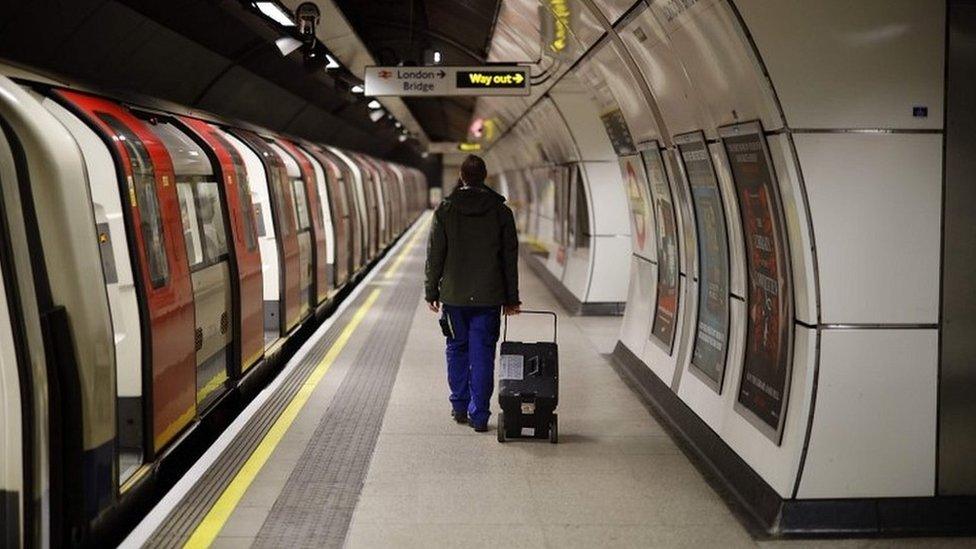Coronavirus: TfL secure two-week extension of bailout
- Published
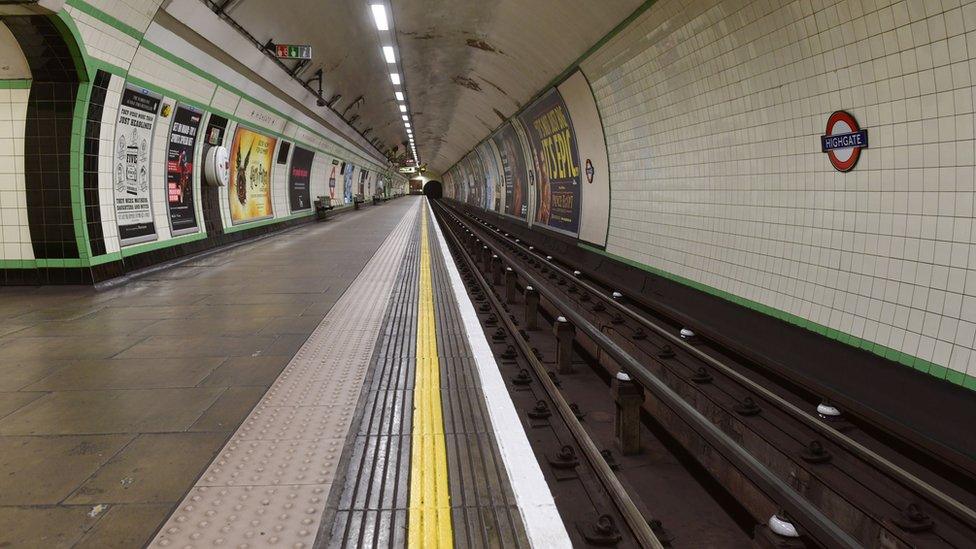
The government continues the terms of the current £1.6bn bailout package for two more weeks.
Transport for London (TfL) has secured a last-minute extension of its bailout to keep services running for two weeks.
The government will continue the terms of the current £1.6bn bailout package, until 31 October - roughly equivalent to £113m.
The original bailout was due to run out on Saturday.
"The two-week extension will enable TfL to continue running safe, reliable and frequent transport services," the Mayor of London said.
A spokesperson for Sadiq Khan said London transport was "more critical than ever as the capital enters tier 2 and with Covid cases on the rise".
"Sadiq will continue to fight for appropriate longer-term funding for TfL, and a fair deal for Londoners," the spokesperson said.
TfL bosses have asked for a £5.7bn funding package to keep services running for the next 18 months.
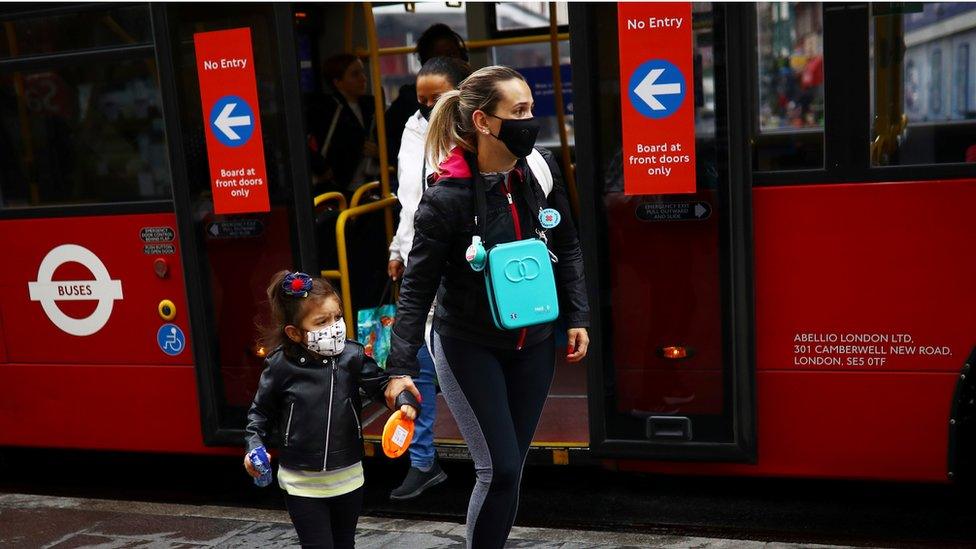
City Hall claims the government is trying to remove free travel for children and older people as a condition of a second bailout
The mayor's office claimed the government was asking for the £15 congestion charge to the North and South Circular.
A spokesperson added "taking free travel away from children and older people" was a red line for the mayor.
City Hall had complained of punitive conditions attached to the first grant at the last minute, including extra borrowing, slashing free travel for older people and under 18s and raising fares next year.

Analysis by Tom Edwards, BBC London Transport Correspondent
So we have a two-week respite - but we might be back here again on 31 October.
The strings attached to the second bailout are controversial to say the least.
City Hall says the government wants to extend the congestion charging zone out from central London, to a huge area within the North and South Circular.
Free travel for under-18s and over-60s would also end.
Deputy Mayor of Transport Heidi Alexander made it clear they would not support those moves.
And it also raises questions about the devolution of power and who should be moulding transport policy in the capital. Londoners certainly did not vote for those policies.
Can Number 10 and the mayor see a way through and compromise?

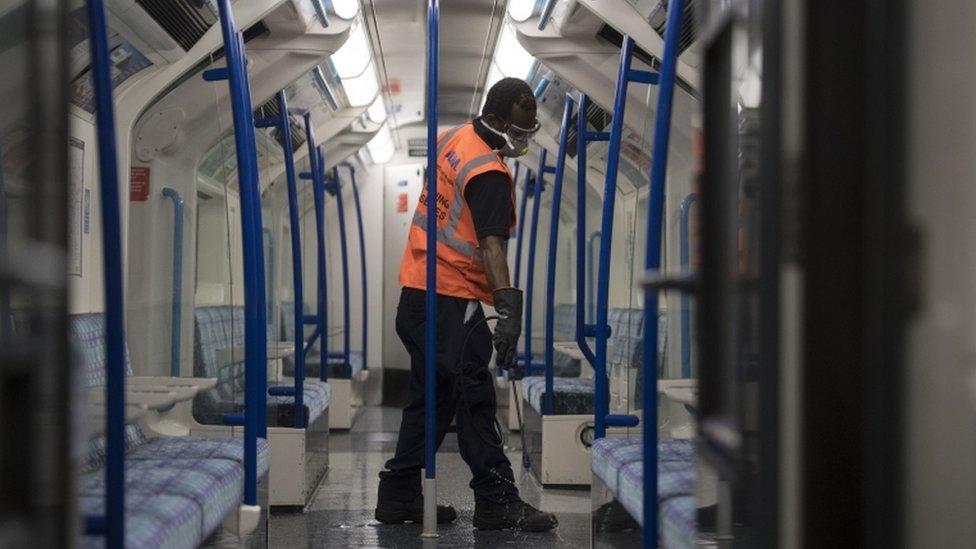
TfL has had to increase the number of deep cleans
TfL Commissioner Andy Byford previously said TfL's finances were "right on the wire".
The transport authorities funds are down £45m a week compared to last year, Mr Byfrod told the TfL Finance Committee.
TfL's Liquidity Policy, external means it has to maintain a minimum level of cash reserves of at least 60 days' worth of forecast costs - about £1.2bn.
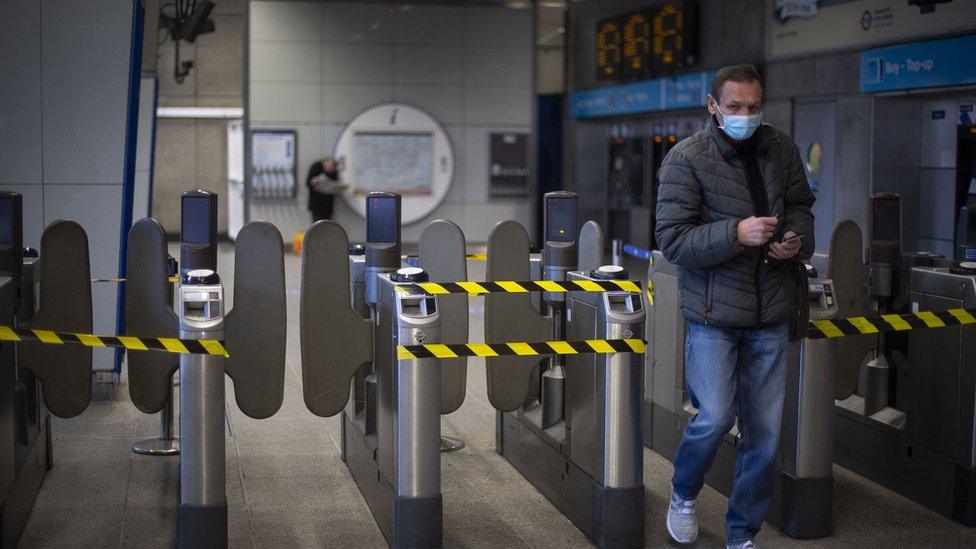
In 2019-20 Transport for London earned £4.9bn from fares -making up 47% of the transport authority's income
Without a bailout the network would be forced to issue a Section 114 order, the equivalent of bankruptcy for a public company.
TfL only allowed to run services it was legally obliged to maintain.
Due to a 200-year-old law, the Woolwich Ferry - which links Woolwich and North Woolwich - is the only commuter service TfL is legally obliged to run.
Buses for children who live more than two miles from school would also continue to run.
TfL would also carry out limited road repairs and licensed taxis and private hire vehicles.
But the Tube, Overground, rail services, trams and most buses would stop running.
The Department for Transport said: "We have agreed an extension to the support period for the TfL Extraordinary Funding Agreement, allowing further time for negotiations.
"These discussions will ensure London has a safe, reliable network.
"It would be inappropriate to disclose further details at this stage."
- Published2 October 2020
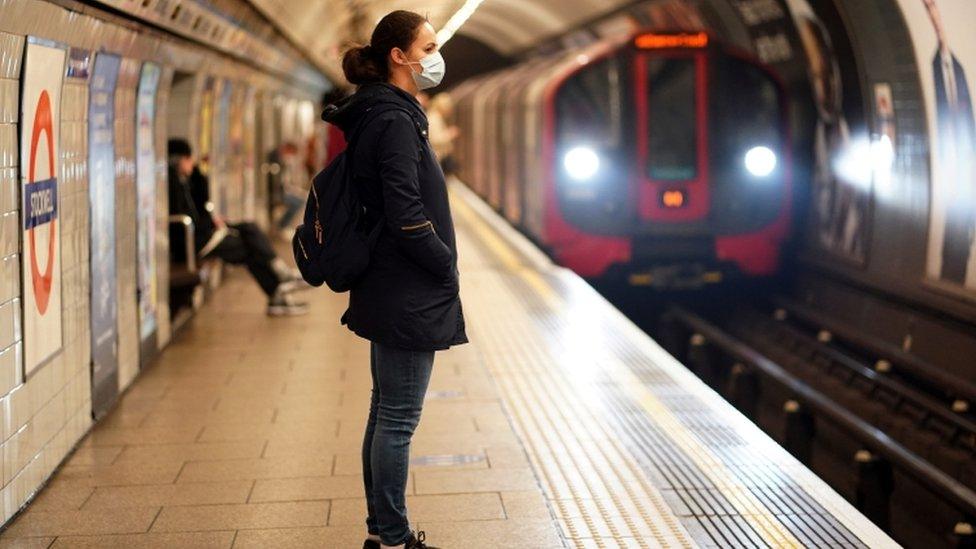
- Published18 May 2020

- Published12 May 2020

- Published22 April 2020
